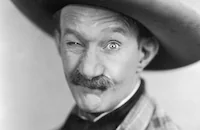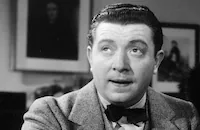The Dawn Patrol

Brief Synopsis
Cast & Crew
Howard Hawks
Richard Barthelmess
Douglas Fairbanks
Neil Hamilton
William Janney
James Finlayson
Film Details
Technical Specs

Synopsis
In 1915, Major Brand, commander of the 59th British Squadron in France, despairs that he is becoming the executioner of the young fliers in his squadron, who are being sent to their deaths in inferior planes. Brand breaks off relations with ace Dick Courtney when he and his best friend, Douglas Scott, defy orders to go over German lines and narrowly escape. When Brand is called to headquarters, he happily turns his command over Courtney, who is at first relieved, thinking that Brand lacked heart. When he soon comes to realize the burdens of his responsibilities, though, Courtney begins to drink heavily. Some time later, Scott's eager young brother Gordon arrives at the post among the new replacements. Scott is overjoyed at his arrival, but when Courtney orders Gordon to fly his first mission, Scott begs him to spare his younger brother. Courtney has no other choice but to send Gordon, and when the young man dies, Scott angrily accused Courtney of murder and breaks off their friendship. Days later, Brand who has been given the assignment of blowing up a munition dump behind German lines, returns to the squadron. Scott demands to go on the one-man mission, which will mean that he must face the seemingly invincible German ace Von Richter. Courtney agrees, but the night before the dawn flight, plies his old friend with liquor and goes out himself to avenge Gordon's death. The mission is successful, but Courtney is killed in a fierce air battle with Von Richter. That night, as Scott waits for Courtney's return, Von Richter flies overhead and drops the message, "the gallant gentleman died this afternoon."

Director

Howard Hawks
Cast

Richard Barthelmess

Douglas Fairbanks

Neil Hamilton
William Janney

James Finlayson
Clyde Cook
Gardner James
Edmund Breon

Frank Mchugh
Jack Ackroyd
Harry Allen
Crew
Ewart Adamson
Joe Barry
Hugh Bennett
Ray Curtiss
Elmer Dyer
Leo F. Forbstein
Ernest Haller
Howard Hawks
M. Raymond Hubbell
Percy Ikerd
Fred Jackman
Seton I. Miller
Leon Nomis
Robert North
Jack Okey
Erno Rapee
Jean Raymond
Earl Robinson
John Monk Saunders
Frank Shaw
Joseph Steele
Edward Stevenson
Dan Totheroh
William Walling

Film Details
Technical Specs

Award Wins
Best Writing, Screenplay
Quotes
Trivia
Notes
The opening title card of the viewed print read: " Flight Commander, from the story by John Monk Saunders." The title of Saunders' original story was "The Flight Commander." The opening title card was changed by Warner Bros. following the release of their 1938 production of The Dawn Patrol. The exact wording of Leon Nomis' onscreen credit was not legible on the viewed print. Information in the production file for the file in the Warner Bros. collection at the USC Cinema-Television Archives reveals that Nomis acted as Richard Barthelmess' double, but he May also have worked in another capacity on the film.
Warner Bros. files at USC reveal the following additional information: Location shoot for the production, which had a final cost of $611,722.46 took place in Newhall, CA, at the Metropolitan Airport in Van Nuys, CA and at Sherwood Forrest in Southern California. Actor Neil Hamilton was borrowed from Paramount Publix Corp. for the film, as was writer Seton I. Miller. Saunders won an Academy Award for Best Original Story for the film. A novelization of the 1930 film, entitled The Dawn Patrol, was written by Guy Fowler and published by Grosset & Dunlap in 1930.
The Warner Bros. files also reveal late in 1930 the studio was sued by The Caddo Company and the Gainsborough Corp. The suit charged that The Dawn Patrol plagiarized Hell's Angels. Warner Bros. won the suit and went on to remake the story in 1938 under the title The Dawn Patrol. Modern sources include actor Dave O'Brien in the cast, but he was not discernable in the viewed print. The 1938 production incorporated some aerial footage and used essentially the same script as the 1930 film, although, as noted by some critics, the 1930 production had a more anti-war tone than the 1938 film. For information on the 1938 production, please consult the entry in AFI Catalog of Feature Films, 1931-40.












